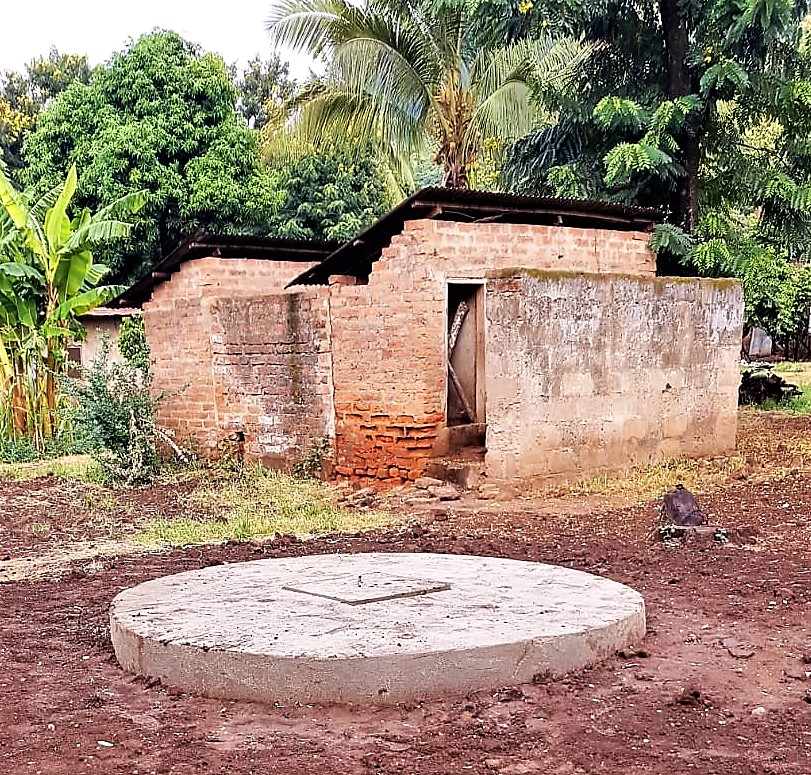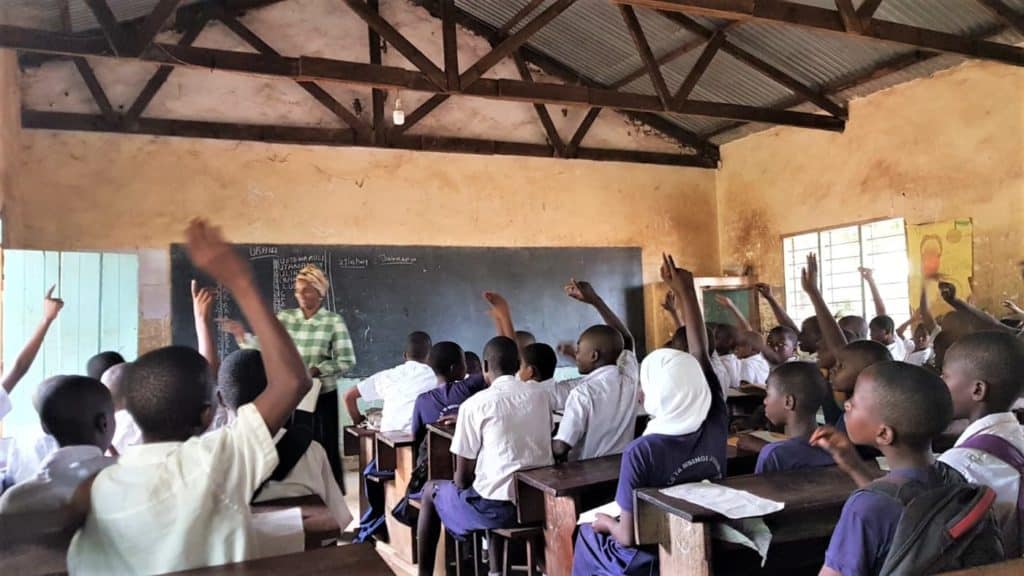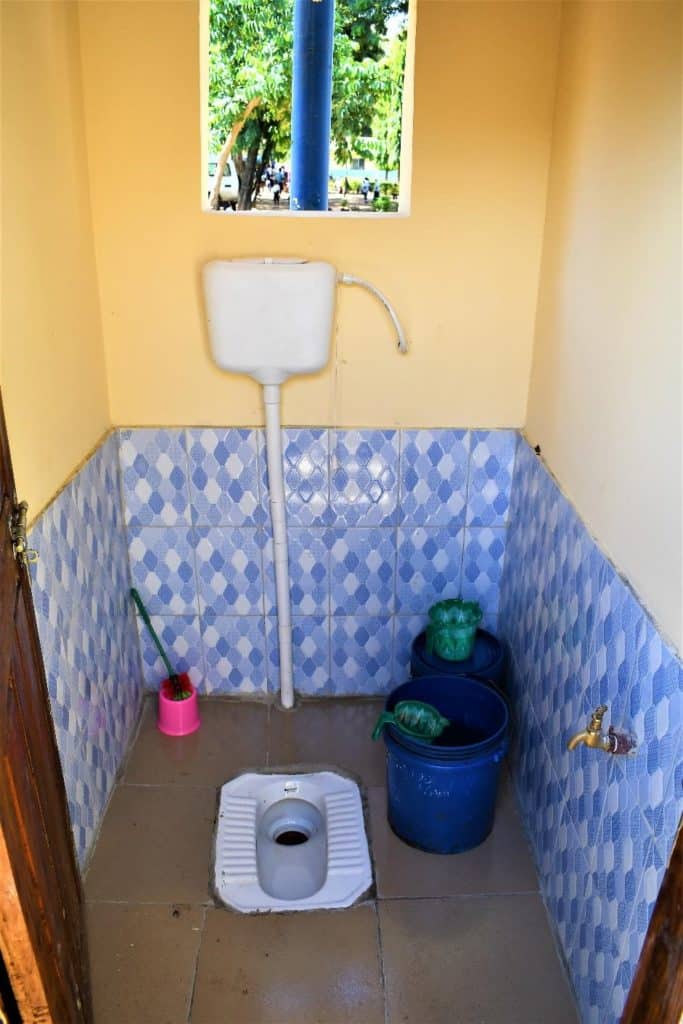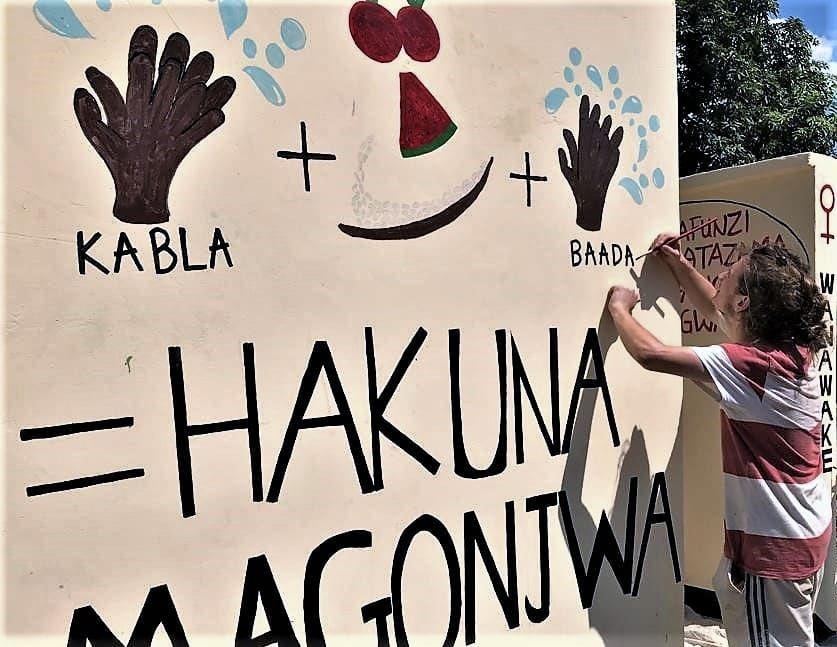Delivering Sustainable Hygiene and Sanitation Through Young People
Delivering Sustainable Hygiene and Sanitation Through Young People
A team of volunteers from Jersey Overseas Aid (JOA) have been taking part in a Raleigh Tanzania school water, sanitation and hygiene (SWASH) project in Mkamba village for 18 days. They have worked to construct a new set of teacher’s toilets at the local primary school. In addition to the toilets, volunteers have worked to establish a connection with the school and surrounding community through SWASH awareness raising lessons with the children and teachers, and meetings with community members. Lasting relationships were also made with the families where Raleigh volunteers stayed and with the children they taught; a reflection of the spirit of the volunteers and welcoming nature of the community.
How sustainable is the SWASH project volunteers have been working on?


These SWASH lessons are aided by the national initiative ‘Child to Child’, aimed at encouraging children to raise awareness in their homes and communities about the lessons they are taught in school. Therefore, the additional education they receive can benefit a much larger audience. Children are often tasked with caring for younger siblings and tending to animals so it is natural that they can become very effective agents of change.

Redempta Masheyo, a teacher in Juhudi Primary School, explains how the toilets that have been constructed are already creating an excitement around the local Mkamba area:
“With more modern toilets there will now be a higher attendance throughout the school day. Kids didn’t want to use the old toilets but now there are nice new ones so they are proud of their school. These toilets are much easier to clean so diseases will hopefully reduce. Also, the queues will be much shorter so more children will use proper toilets instead of toileting outside.”
“The toilet hygiene was really poor before. 8 drop-holes with broken doors for 800 children is not enough. Either children would join a long queue or just defecate in the grass behind the toilet block. It smelt really bad there. The younger children were not able to hold it enough for the queues so would always defecate outside. So would Standard 7 as they had important studies so could not be away from class for that long.”
“Girls on their period would not attend school as the queues were so long there was pressure to be quick and they couldn’t clean themselves quick enough before someone tried to barge the door down.”
The toilet blocks are now decorated with both internal and external murals containing inspiring quotes dedicated to the teachers to be a good example to the children who look up to them, as well as reminders of the food preparation lessons that were delivered to the 841 children of the school. Due to the location of the school, the murals are an invaluable way to keep the messages in the forefront of people’s minds.
“The school is in a busy location so there are always parents and other adults passing the new toilet blocks. The murals are a great reminder for the children, but also the adults who pass through the school grounds.”

Redempta went on to emphasise how a SWASH project delivered in primary schools can have a lasting effect in the community for years to come: “This project will be a story for these children to tell their children and even grandchildren. We are forever grateful for the JOA/Raleigh project team coming to Mkamba.”
Written by Bryn Williams



